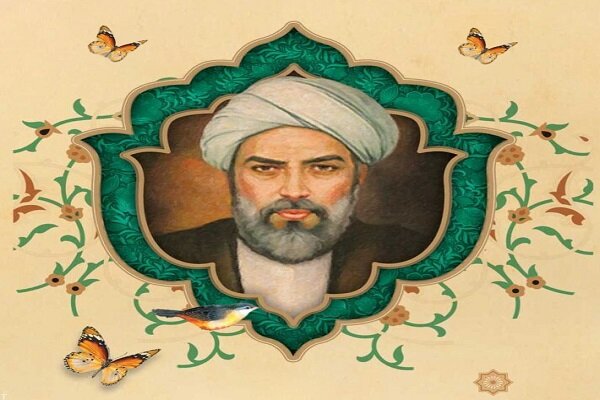
Sadr al-Din Muhammad b. Ibrahim b. Yahya Qawami Shirazi (ca. 1571–1636) is arguably the most significant Islamic philosopher after Avicenna. Best known as Mulla Sadra, he was later given the title of Sadr al-Muta’allihin (Master of the theosists) for his approach to philosophy that combined an interest in theology and drew upon insights from mystical intuition.
Biography, Early life
Mulla Sadra was born in Shiraz in 1588 CE. His father, Khwaja Ebrahim Qawami, was a scholarly and very religious politician, and despite having wealth, honor, and status, he had no children until, as a result of much prayer and supplication to God, he was blessed with a son, who later became known as Mulla Sadra. Being the only son of the ruling minister of the vast region of Fars, Mulla Sadra lived a very comfortable life during his teenage years and youth. In addition to the common courses that were taught in the seminaries of that time, he also mastered such subjects as Persian literature, Arabic, logic, jurisprudence, theology, and philosophy. Mulla Sadra received part of his training in Shiraz, but he underwent most of his education in Qazvin, which was the capital of Iran at that time.
In Qazvin, Sadra acquired most of his scholarly knowledge from two prominent teachers, namely Baha’ ad-Din al-`Amili and Mir Damad, whom he accompanied when the Safavid capital was transferred from Qazvin to Isfahan in 1596 CE / 1006 AH. Shaykh Baha was an expert in Islamic sciences but also a master of astronomy, theoretical mathematics, engineering, architecture, medicine, and some fields of secret knowledge. Mir Damad also knew the science of his time but limited his domain to jurisprudence, hadith, and mainly philosophy. Mir Damad was a master of the Peripatetic (Aristotelian) and Illuminationist schools of Islamic philosophy. Mulla Sadra obtained most of his knowledge of philosophy and gnosis from Damad and always introduced Damad as his true teacher and spiritual guide.
Mulla Sadra philosophy
Mulla Sadra is considered the master of the Illuminations or the Ishraghi school of philosophy, a fundamental figure who synthesized the many traits of the philosophy of the Islamic Golden Age into what he called Transcendent Theosophy.
Mulla Sadra brought “a new philosophical vision in dealing with the nature of reality” and created “an important transition from the very essential to existentialism” in Islamic philosophy.
The philosophy of Mulla Sadra ambitiously synthesized the Avicenna school, the Enlightenment philosophy of Sohravardi, the Sufi metaphysics of Ibn Arabi, and the theology of the Ash’ari and Twelver schools.
The Founder of “Transcendent Theosophy”
While residing in a village named Kahak near Qom, he became interested in Islamic mysticism but continued to pursue his teachings and research. At the end of his life, he returned to Shiraz, taught at the “Khan” seminary, and trained many prominent students such as Mulla Mohammad Faiz Kashani and Sheikh Abdul Razzaq Lahiji. It was during this period that he wrote the book “Al-Hikma al-Muta’aliya fi al-Asfar al-‘Aqliyya al-Arba’a” (The Transcendent Wisdom Regarding Four Intellectual Journeys), which changed Islamic philosophy. Asfar al-Arba’a consists of four volumes and is arranged based on the four stages of the mystical journey. This book contains the principles of “Transcendent Theosophy”. One of the characteristics of transcendental wisdom is the compatibility of reason and revelation, which means there is no conflict between human reason and divine revelation and religious teachings and that man can receive divine knowledge through his intellectual essence.
In so doing he not only reconciled philosophical and gnostic thought with Shi’a theology, but he also developed a fresh and integrated Islamic worldview. In other words, through his metaphysical philosophy (hikmat al-muta’aliyah), Mulla Sadra attempted to harmonize philosophy, gnosticism, and theology to answer some of the most fundamental questions concerning God, His Nature and Attributes, the meaning of life, the purpose of creation and the nature of resurrection – all surveyed through the lenses of revelation, reason, intuition and experience – thus being, as it were, the final summing up of a whole philosophy. Whether one agrees with all his ideas or not, one cannot fail to admire his sincerity of purpose, vast erudition, and considerable analytical skills and ability.
Inspired by the Islamic Gnostics, Mulla Sadra has organized his “Transcendent Theosophy” in the form of four intellectual journeys:
1- The journey from the creatures to God,
2- The journey in God by God,
3- The journey from God to the creatures by God,
4- The journey in the creatures by God.
Mulla Sadra’s main books:
Mulla Sadra wrote many works on different subjects. Here are his main books:
Al-Hikmat al-muta’aliya fi l-asfar al-‘aqliyyat al-arba’a: also known as al-Asfar, This Mulla Sadra’s main work.
Al-Mabda’ wa l-ma’am: This work is also called al-Hikmat al-muta’aliya. The book counts as a summary of the second part of al-Asfar.
Tafsir al-Quran al-karim (the exegesis of the Quran). Mulla Sadra wrote an exegesis of different verses and suras of the Quran. Late in his life, he started to write a complete exegesis of the Quran, but it remained unfinished by his death.
Sharh Usul al-Kafi: his incomplete commentary on Usul al-Kafi in Seven Volumes.
Al-Shawahid al-rububiyya
Kasr al-asnam al-jahiliyya
Legacy:
Despite being a full-time teacher and a prolific writer, Mulla Sadra found time to train scores of influential scholars who also became prominent exponents of philosophy, mysticism, and theology in Persia. His most famous students included thinkers like Muhammad ibn Murtada (b. 1598-d. 1680), who is better known as Mulla Fayd Kashani, and Abd al-Razzaq ibn Ali ibn Husayn al-Lahiji (d. 1662) – both of whom were married to his daughters.
In addition to this, Mulla Sadra performed the sacred hajj (pilgrimage to Makkah) seven times and died in Basrah at the age of seventy while he was on his way home from completing his seventh pilgrimage.
Today, he is considered to be one of the great Muslim philosophers on account of his original contributions to the field of Islamic philosophy.
Some of Iran’s most eminent scholars and thinkers have acknowledged their profound debt to Mulla Sadra. Thanks to some contemporary scholars, his works are now being increasingly disseminated across the West.
DID/







